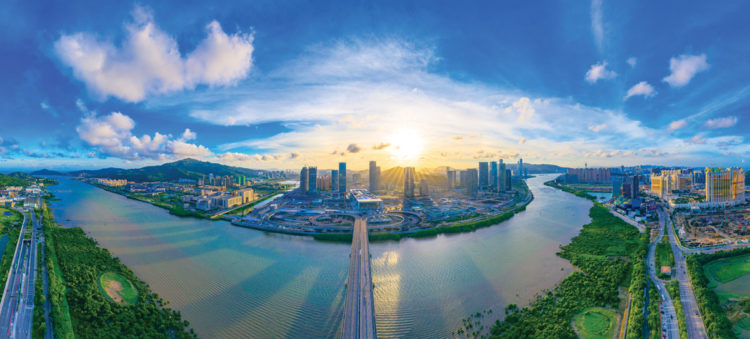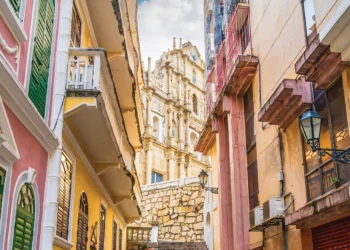The special economic zone of Hengqin is not only emerging as a critical infrastructure project for mainland China, it will also play a vital role in the future of Macau and presents a unique opportunity for Macau’s concessionaires to expand their tourism reach.
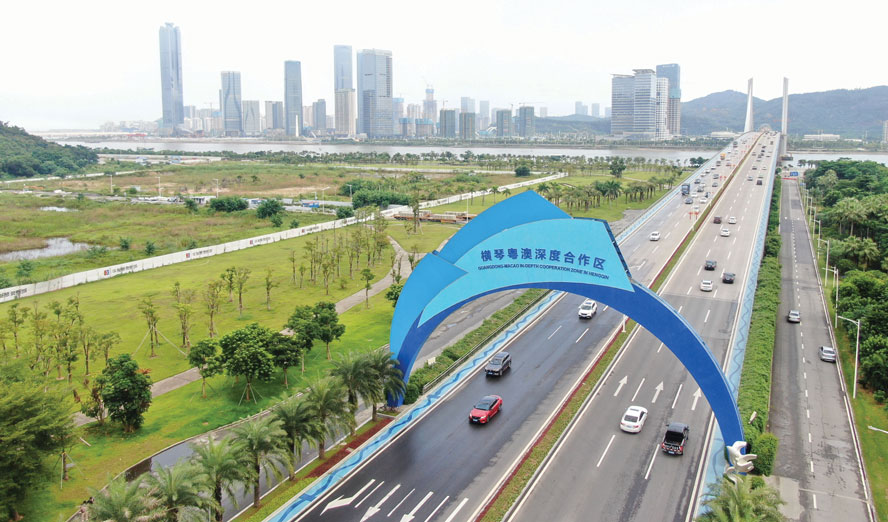
When Macau Chief Executive Ho Iat Seng delivered his first Policy Address for the Fiscal Year 2020 at the Legislative Assembly on 16 April 2020, he spent considerable time explaining how the SAR plans to make use of Hengqin – the special economic zone sitting just across the river in China’s Guangdong Province. Asked by a reporter during the subsequent press conference whether Hengqin could become a “second Macau”, Ho answered, “That’s what we would like to see and hope for.”
Ho’s comments led to speculation that the Central Government might “lease” Hengqin to the Macau SAR Government on a land lease basis – as in the case of the Hengqin campus of the University of Macau. But with the final launch on 13 September 2021 of the Overall Plan for the Construction of the Guangdong-Macao In-Depth Cooperation Zone in Hengqin, the project was officially announced as a so-called In-Depth Cooperation Zone, essentially handing joint planning, construction and management of the island to Guangdong Province and Macau.
So, what are we talking about when we reference Hengqin?
If we were talking pre-2009, we may have referred to Hengqin as the completely undeveloped island that was three times the size of Macau and inhabited by around 5,000 fishermen, just across from the village of Coloane. After 2009 we would be talking about China’s third national-level new area – the Hengqin New Area. In 2015 it became the Hengqin Free-Trade Zone within the China (Guangdong) Pilot Free-Trade Zone, and in 2019 the “Hengqin International Leisure Tourism Island”. Now we talk about Hengqin as the future of Macau.
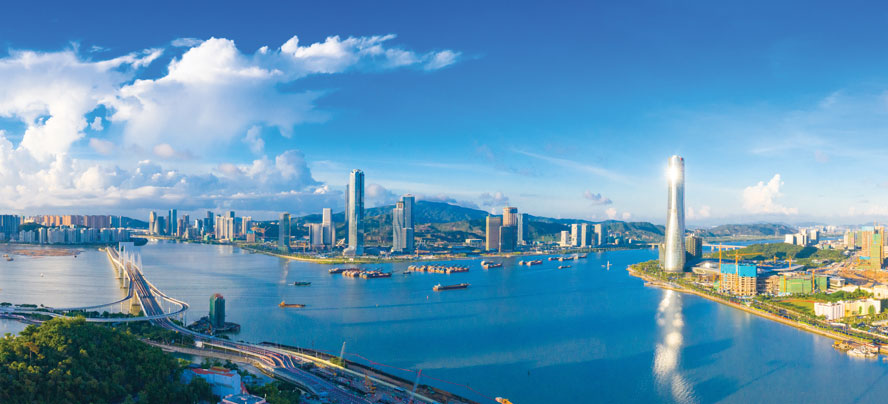 This evolution of Hengqin’s status reflects how the area’s policies and positioning have gradually become clearer over the past 13 years of development.
This evolution of Hengqin’s status reflects how the area’s policies and positioning have gradually become clearer over the past 13 years of development.
Ever since the original Hengqin Overall Development Plan was approved by the State Council in 2009, the development of Hengqin has emerged as a pathway towards Macau’s economic diversification.
In the Hengqin Cooperation Zone, a two-track administration system governs the entry and exit of goods, whereby “first-tier” goods moving between Hengqin and Macau are subject to registration-based management to simplify customs declaration procedures. Under the “second-tier”, all tax-exempted (bonded) goods moving from Hengqin to mainland territory are required to undergo customs clearance procedures, as imported goods, and tariffs and import duties will be imposed.
In terms of the movement of people, Macau and Hengqin will adopt the customs clearance mechanism of “Joint Inspection and One-Time Release” aimed at ensuring a much faster border crossing experience than visitors to Macau have traditionally endured via the Gongbei Port near Zhuhai.
There will be no restrictions on people entering into the rest of mainland China from Hengqin.
Macau does not levy customs tariffs on imports, meaning that Hengqin will virtually become a tariff-free zone if it imports and exports goods through Macau.
Chief Executive Ho told the Legislative Assembly earlier this year that construction of Hengqin’s customs surveillance areas is well underway and the In- Depth Cooperation Zone will meet closed operation requirements by the end of December.
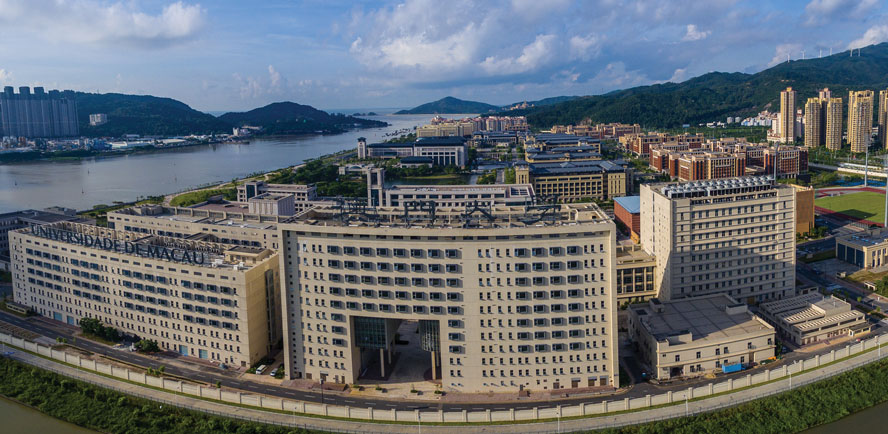
Hengqin Island, located to the west of Macau and formerly under the jurisdiction of Zhuhai city, covers an area of about 106 square kilometers, more than three times the size of Macau’s land area of 32.9 square kilometers.
At present, the Hengqin Campus of the University of Macau and the Macau Port Zone at Hengqin Port are completely administered by Macau, covering a total area of about 1.6 square kilometers. The Cooperation Zone covers the entire surface of Hengqin Island apart from the University and port areas.
Under the leadership of the Guangdong-Hong Kong-Macao Greater Bay Area Construction Leading Group, Guangdong and Macau have jointly established a cooperation zone management committee to make overall decisions on major plans, policies and projects, with important personnel appointments and removals within the scope of their powers. The management committee of the cooperation zone implements a dual director system, whereby the governor of Guangdong Province and the Chief Executive of the Macau SAR serve jointly. Macau also appoints an Executive Deputy Director, and the Guangdong and Macau sides negotiate to determine other deputy directors.
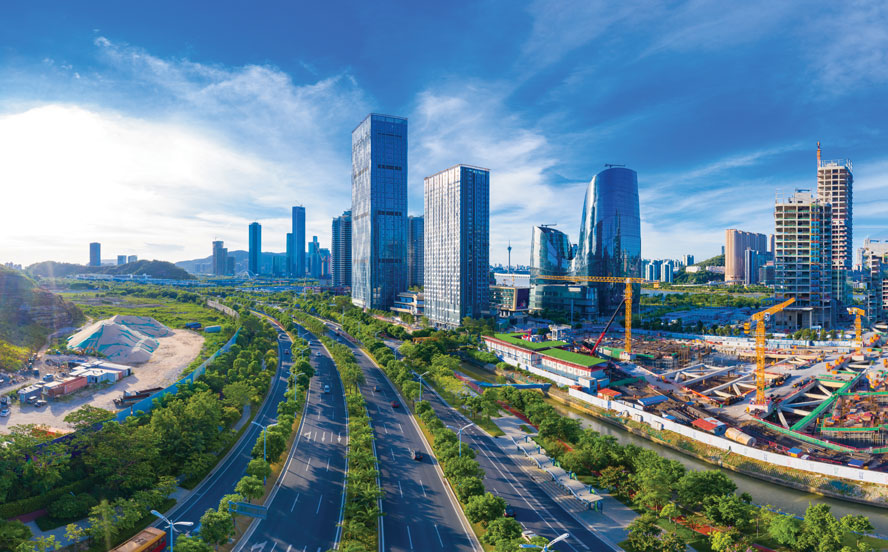 The purpose of this zone is to build up a mechanism that allows collaborative planning, construction and management for Guangdong and Macau, thereby optimizing the “hierarchical management” strategy. However, “party building, national security, criminal justice, social security” and other mainland-centric policies will be administered by the agencies dispatched by the Guangdong Provincial Party Committee and the Provincial Government. A “joint boundary clearance” model has also now been adopted between Hengqin and Macau, and Macau-registered vehicles can enter and exit Hengqin directly without applying for a mainland license plate. In addition, the Macao Light Rail Line will be extended to the Zone to connect with the Zhuhai Intercity Rail Link. Macau’s education, healthcare and social service systems will also be “adopted” by Hengqin, facilitating relocation for Macau residents who wish to move to Hengqin.
The purpose of this zone is to build up a mechanism that allows collaborative planning, construction and management for Guangdong and Macau, thereby optimizing the “hierarchical management” strategy. However, “party building, national security, criminal justice, social security” and other mainland-centric policies will be administered by the agencies dispatched by the Guangdong Provincial Party Committee and the Provincial Government. A “joint boundary clearance” model has also now been adopted between Hengqin and Macau, and Macau-registered vehicles can enter and exit Hengqin directly without applying for a mainland license plate. In addition, the Macao Light Rail Line will be extended to the Zone to connect with the Zhuhai Intercity Rail Link. Macau’s education, healthcare and social service systems will also be “adopted” by Hengqin, facilitating relocation for Macau residents who wish to move to Hengqin.
With regard to the application of the law, the Hengqin Plan proposed the gradual building of an institutional system that integrates civil and commercial rules with Macau and internationally, under he premise of following the Constitution and the Basic Law of the Macao SAR. The management committee will “study and formulate regulations for the cooperation zone to provide institutional guarantees for long-term development.”
The Hengqin Plan identifies four industry families for development in Hengqin: scientific and technological research and high-end manufacturing industries; traditional Chinese medicine and Macau-branded industries; cultural tourism, convention and exhibition and commercial and trade industries; and a modern financial industry. According to the latest data released by tax authorities of the Corporation Zone, the number of newly registered enterprises in the above four industries accounted for 77.68% of the total number of newly registered enterprises, making them an important industrial bloc among newly registered enterprises.
The document also sets milestones, including a 2029 deadline for obvious signs of economic diversification and integration of existing regulations and the realization of Macau’s economic diversification by 2035.
BUILDING UP, BUILDING OUT
After more than a decade of construction, Hengqin is no longer a barren island next to Macau but a modern city in its infancy.
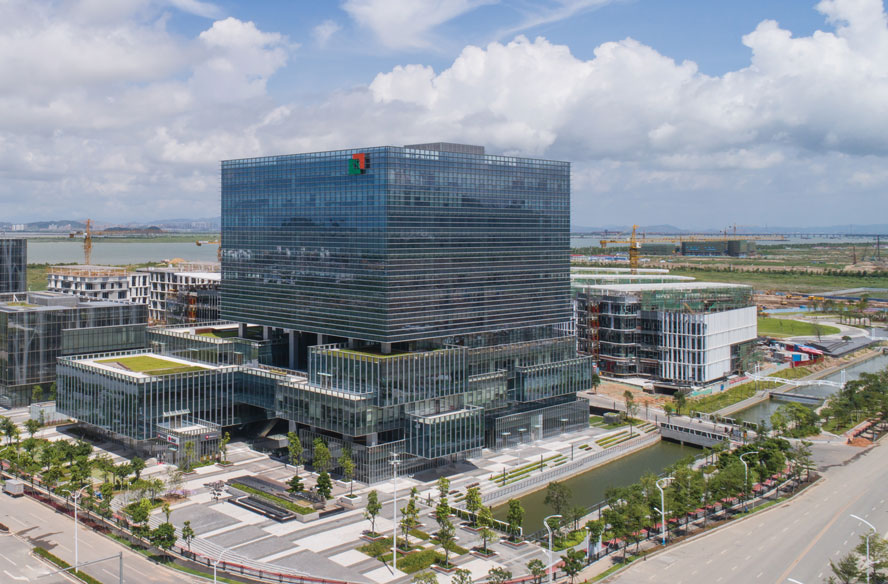
According to the Statistics Bureau, the regional GDP of the cooperation zone hit RMB45.46 billion (US$7.14 billion) in 2021, a year-on-year increase of 8.5%. Its general public budget revenue came in at RMB10.87 billion (US$1.7 billion), topping RMB10 billion for the first time and up by 14.3% year-on-year.
By the end of December 2021, Hengqin was home to 56,176 business entities, including 4,761 Macau-funded entities with combined registered capital of RMB144.61 billion (US$22.7 billion). The number of Macau residents registered as living on the island was 3,621.
If it is industry that attracts people to a city, then it is the city’s support and facilities that keep them there.
In terms of educational resources, Hengqin is currently home to a number of quality schools. According to the official admissions policy for 2021, there are now seven public schools operating on Hengqin Island including two kindergartens, three primary schools and two junior high schools. In addition, there are four private education schools and institutions, including Harrow Innovation Leadership Academy Zhuhai in Hengqin and Dulwich International High School Zhuhai. There are 5,200 students enrolled in Hengqin for the spring term of 2022, of whom more than 140 are from Macau.
In terms of medical resources, Hengqin currently operates the Hengqin Branch of the Zhuhai People’s Hospital. A Grade-III Class-A public hospital, the Hengqin Hospital of the First Affiliated Hospital of Guangzhou Medical University is currently under construction and is scheduled to open in 2025, equipped with 500 beds, a “smart” logistics system and robots to transport medical supplies between departments, pharmacies and nurse stations.
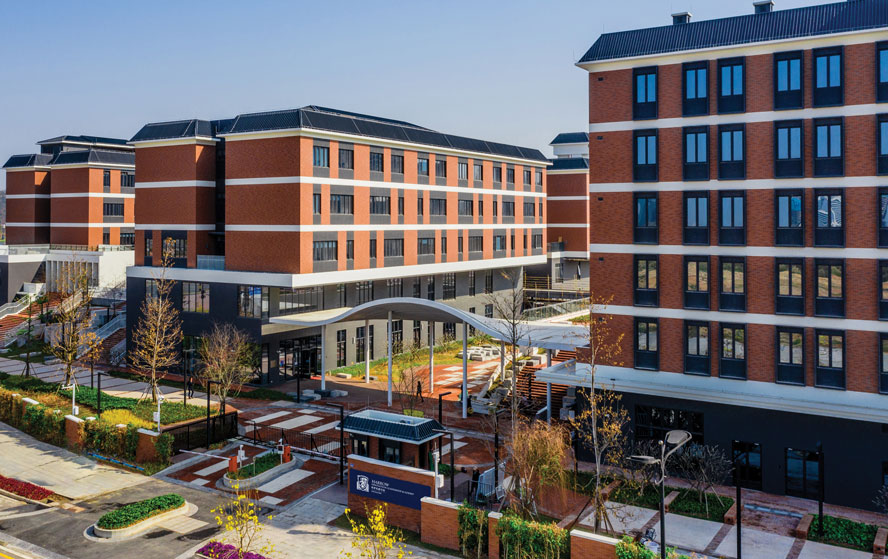
In January of this year, the Functional Medicine Clinic of Serensia Woods, the first Macau-owned medical institution in Hengqin, was granted a medical institution permit by the Cooperation Zone. The clinic is located in Serensia Woods Wellness Resort, a 300-unit community promising luxury retirement living plus both family leisure and business travel accommodation, with medical and health-care services provided by well-known Chinese and Western medical professionals.
And yet it is in the field of tourism that Hengqin and Macau may truly become kindred spirits. Certainly, Hengqin has wasted no time in promoting its tourism offerings, primarily via the Chimelong International Ocean Tourist Resort – home to theme park Chimelong Ocean Kingdom. In 2019, prior to the COVID-19 pandemic, Chimelong attracted 11.7 million visitors – a healthy first step towards its long-term goal of 50 million visitors annually. By comparison, Macau welcomed a record 39.4 million visitors in 2019.
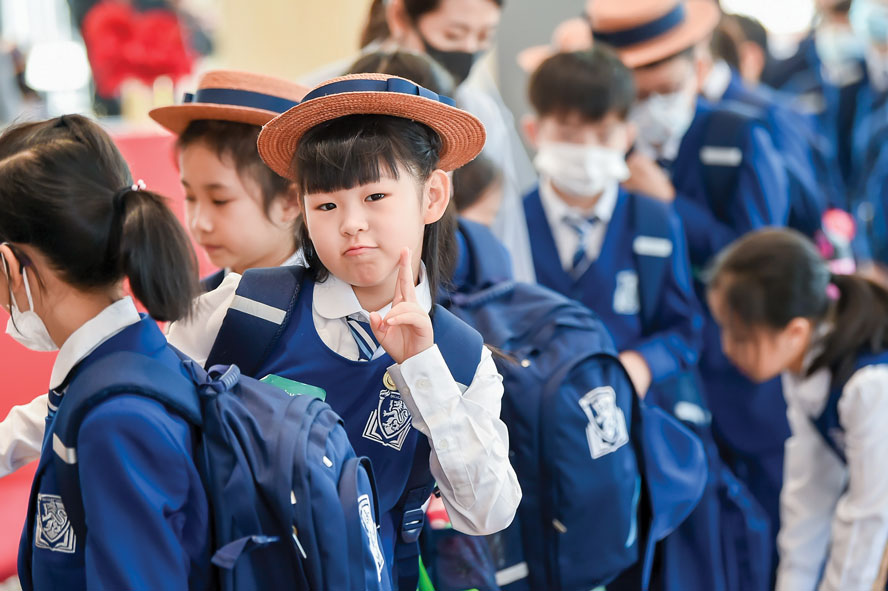
While COVID has naturally impacted those numbers, Chimelong still attracted 4.8 million domestic tourists in 2020, surpassing both Shanghai Disney Resort and Universal Studios Florida and ranking eighth globally according to the 2020 TEA/AECOM Theme and Museum Index.
Joining Chimelong Ocean Kingdom later this year will be a new theme park, Chimelong Marine Science Park, featuring the world’s largest marine science museum and a killer whale display pool, while work is underway on two animal safari theme parks, one of them being Hengqin Chimelong Animal Kingdom. Described as the world’s largest wild animal kingdom, it will be divided into separate day and night sections.
A cable car attraction running up Big Hengqin Mountain from Ocean Kingdom is expected to open before the end of this year, offering expansive views across Hengqin and as far as Macau’s Cotai Strip.
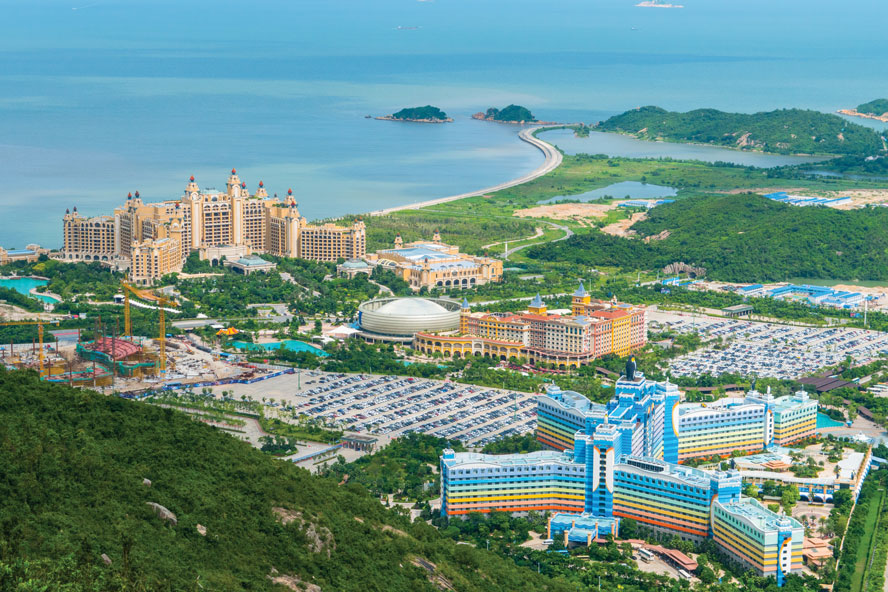
Of course, as it stands, none of this is of any particular benefit to Macau.
“The issue they’ve got at the moment is that even if the pandemic border restrictions are removed tomorrow, visitors from mainland China who want to go to Chimelong can easily do so – and in big numbers – but most of those people cannot get entry permits into Macau, even post-pandemic,” explains Matthew Ossolinski, CEO of GW Investment Consulting, which provides advisory and business brokering services to integrated resort operators and institutional investors on Hengqin.
“Until they can get permits to go back and forth freely, the two tourism markets will not be integrated. That’s a policy issue that will take a few years and it won’t happen overnight.”
Development of the infrastructure to support such future integration of Hengqin and Macau is already well underway, however.
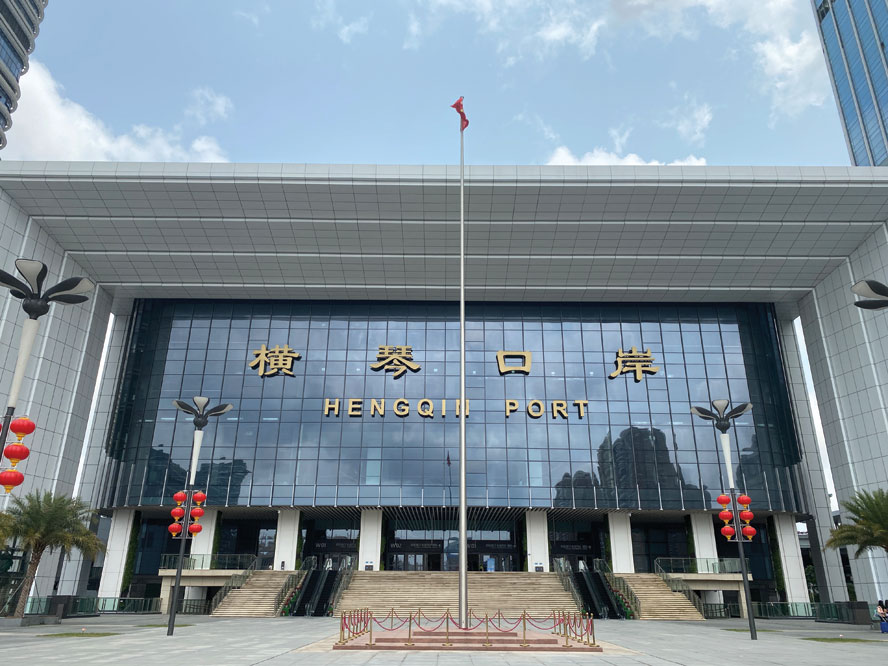
Opened in 2020, Hengqin Port contains the second largest underground train station in China, plugging Macau and Hengqin into China’s high speed rail network with a capacity of 80 million passengers per year. Next on the agenda is a road and rail bridge effectively connecting the Cotai Strip with Zhuhai Jinwan Airport, cutting travel times to as little as 10 to 20 minutes once open in 2023.
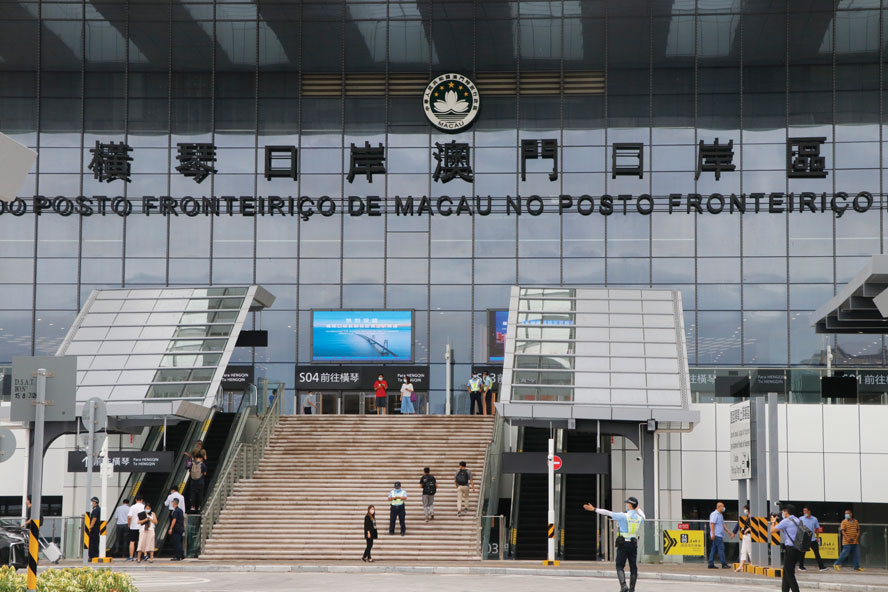
Looking ahead to a post-pandemic China, and with most of Hengqin’s major infrastructure projects soon to be completed, Ossolinski envisions implementation of a new visa system, perhaps a “joint special pass, where if you are a Chinese domestic tourist and you have a hotel booked on Hengqin you get unlimited entries into Macau for one week so you can pass back and forth freely between Hengqin and Macau. When they do something like that, that’s when they will truly be integrated.”
It is this type of free cross-border travel that has Macau’s gaming operators looking to Hengqin as the future home of much-needed hotel room inventory. With free space at a premium, there is currently little scope to expand on the roughly 40,000 hotel rooms Macau currently offers, but there are already over 10,000 hotel rooms built out in Hengqin. Looking further ahead, Ossolinski tells IAG that Hengqin could have capacity for 100,000 hotel rooms in a decade, given plans to add additional land via a series of man-made islands.

“The idea is that Hengqin will add tens of thousands of rooms to Cotai’s hotel room inventory,” says Ossolinski, “and those rooms are already being built.”
Ossolinski also welcomes early moves by Macau’s concessionaires to plant a flag in Hengqin with a view to launching development projects of their own in the near future.
While none of those concessionaires were willing to comment on their Hengqin plans when contacted by IAG, Galaxy Entertainment Group is known to own a plot of land measuring around one square mile and has made no secret of its intention to operate there in future.
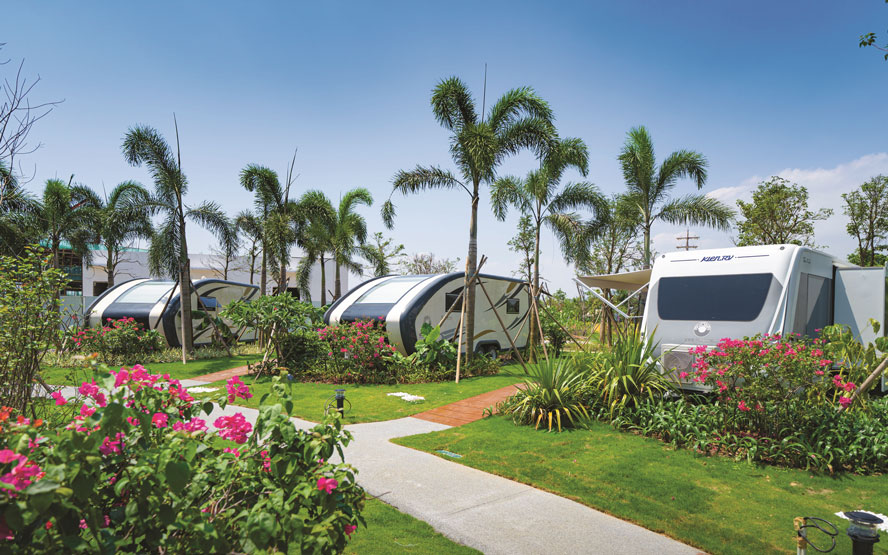 “We continue to pursue our project in Hengqin and are expanding our focus beyond Hengqin and Macau to potentially include opportunities within greater China including the rapidly developing Greater Bay Area,” GEG said in its FY21 earnings announcement.
“We continue to pursue our project in Hengqin and are expanding our focus beyond Hengqin and Macau to potentially include opportunities within greater China including the rapidly developing Greater Bay Area,” GEG said in its FY21 earnings announcement.
Sands China was the first to open a large back office in Hengqin, while two more concessionaires are also setting up back offices there.
“For political reasons it’s a very astute thing for them to be looking at right now,” says Ossolinski, a reference to the upcoming re-tendering for Macau gaming licenses.
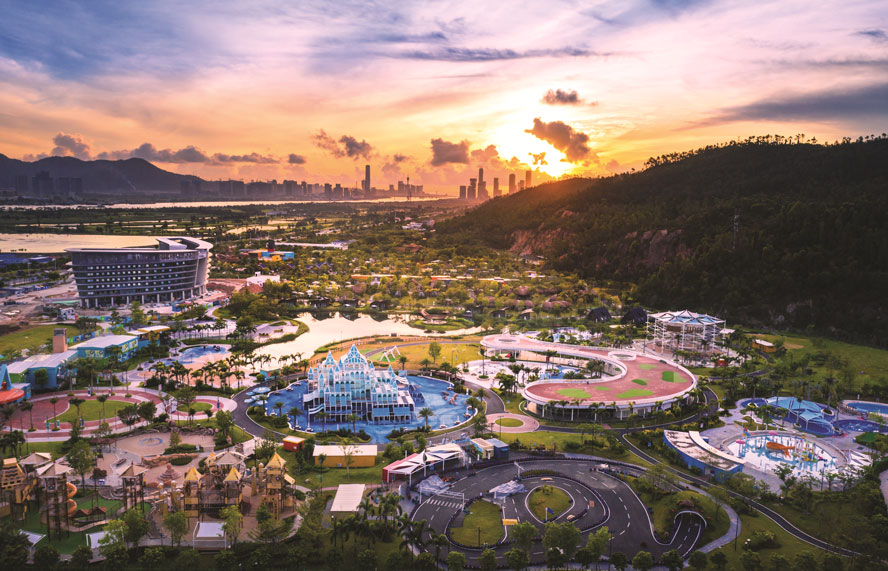
“The biggest action a concessionaire can take to diversify Macau’s economy is to invest in a project in Hengqin, and multiple concessionaires are eying new projects there. However, concessionaire projects will likely only be publicly announced after receiving the green light from Macau’s Chief Executive.”
Ossolinksi prophesies that the concessionaire projects will most likely comprise hotel-resort style complexes with family entertainment included. On a smaller scale, Artyzen Hospitality Group – the subsidiary of Pansy Ho’s Shun Tak Holdings that operates Artyzen Grand Lapa and Coloane Resort in Macau – is already developing a 230-room hotel named Artyzen Habitat Hengqin Zhuhai, due to open next year just a short distance from the Hengqin border checkpoint.
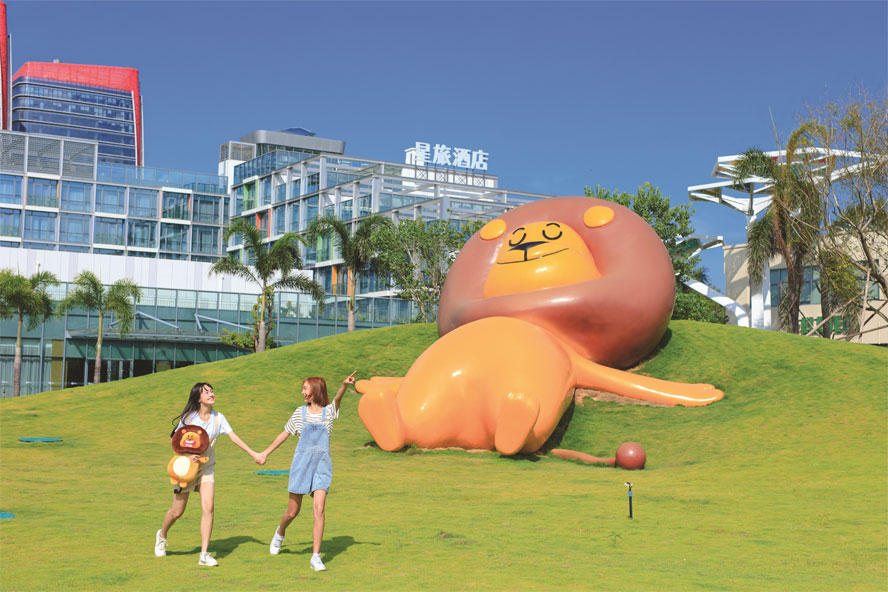 Meanwhile, Hengqin continues to build out major tourism and infrastructure projects at lightning pace, among them Tian Mu Qintai – a landmark building that includes MICE, business headquarters, convention centers, boutique hotels and experiential commerce – and Sumlodol Hengqin Camping Town, featuring high quality caravans, chalets and containerized outdoor accommodation as its core content.
Meanwhile, Hengqin continues to build out major tourism and infrastructure projects at lightning pace, among them Tian Mu Qintai – a landmark building that includes MICE, business headquarters, convention centers, boutique hotels and experiential commerce – and Sumlodol Hengqin Camping Town, featuring high quality caravans, chalets and containerized outdoor accommodation as its core content.
In addition to these large-scale cultural tourism projects, Hengqin has gradually developed a more diversified “multidestination” boutique itinerary.
Da Heng Qin Pan-Tourism Development, operator of Sumlodol, has been commissioned by the Hengqin government to operate Hengqin’s public resources with a focus on cultural-tourism, using Sumlodol’s IP as a carrier to build a series of cultural-tourism stations and to operate public space in the way of cultural tourism.
Chen Bo, brand director of Da Heng Qin Pan-Tourism Development, explained the company’s thinking on this operation of cultural tourism.
“With the public projects we are working on, on the one hand, we hope to bring new sensations and enjoyment to tourists, and on the other hand, we hope that through the operation of these small but sophisticated projects, we can create a liveable and pleasant living space for local residents,” Chen said.
“Any tourism project is important not only for tourists but also for the well-being of the local people. We want to create a public space that is shared by both hosts and visitors. Only when we have the recognition of the local people can tourists experience real local culture and customs when they come.
“In the wake of the pandemic, there are many ways for travel products to respond. With the rise of suburban tourism and camping after the pandemic, many of our stations are fully booked. Tourists go to large-scale tourism projects two or three times a year, but our two-day micro-vacation has been more suitable for them during the pandemic.
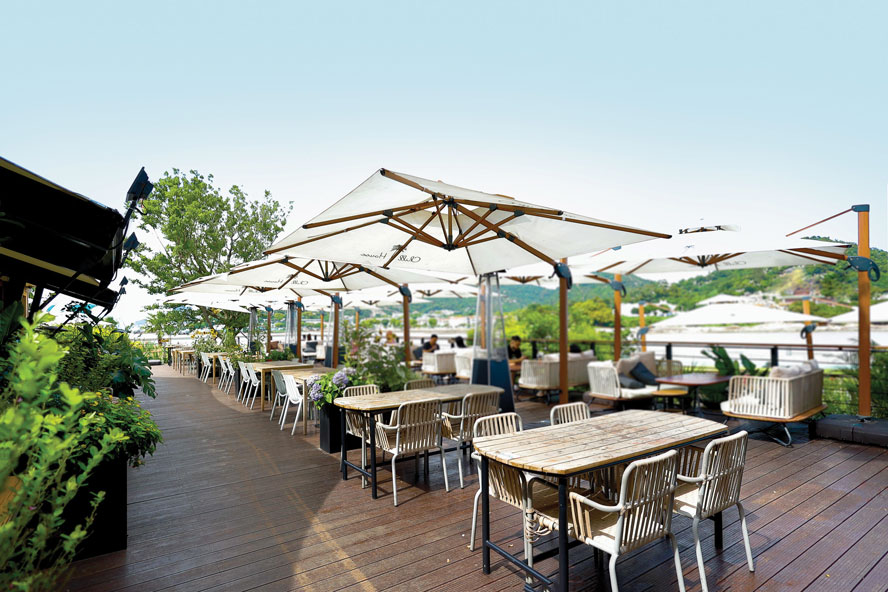
“So the vitality of tourism products is very strong. The whole Hengqin cultural tourism industry already has a strong foundation and will definitely get better and better.”
According to statistics released by the Hengqin Social Affairs Bureau, the total number of visitors during last year’s October Golden Week period exceeded 210,000, compared with just 8,159 in Macau due to a small number of COVID-19 cases.
DUTY FREE ISLAND
On 9 June 2022, Zhuhai Duty-free Group announced that it had won a bid to operate a duty-free shop in the departure hall of Hengqin Port, and it plans to open the first duty-free shop on Hengqin Island by the end of the year. It has also signed a cooperation agreement with Hong Kong-based Lai Sun Group to build a duty-free tourism retail center in Hengqin Novotown, to open next year. Novotown is an international leisure and tourism complex whose in-house facilities include Lionsgate Entertainment World, Hengqin National Geographic Ultimate Explorer, Fantastic Kung Fu Night, Hyatt Regency Hengqin and multiple themed retail and catering stores.
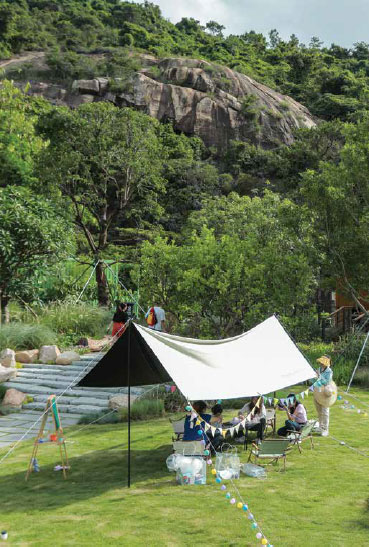
As the construction of the “second-tier” customs surveillance zones are to be completed by the end of this year, the question of whether Hengqin will become a new duty-free island – and potentially harm Macau’s booming duty-free trade – has increasingly come into focus.
Macau entrepreneur David Cheang, founder of AHA and head of AHA HK & Macao Youth Incubation Centre in Hengqin, told IAG that if Hengqin does become a duty-free island in the future, it will be one of only a limited number of duty-free islands in the world.
“With duty-free access to Hengqin for goods from Macau, Hengqin and overseas, it will become a free market for trade,” he explained, “When both goods and people gather here, the local trading and market environment will be significantly enhanced, highlighting Hengqin’s special advantages, namely the deeper integration of the living and business environments of the two places.
“For the people of Macau, this is a trend that should not be ignored. However, how to think about and grasp this opportunity depends on the industry and what each company wants. But seeing the development trend of Hengqin, the sooner you enter this area, the better.”
Rebecca Wong, Tax Partner for PwC China, which opened its branch office in Zhuhai in 2019, believes there is no immediate cause for concern.
“Cosmetics, skin care products, health products and pharmaceuticals are subject to strict import control requirements in mainland China, including long permit application processes,” she said. “These products will still be available only in Macau for quite some time in the future, so I don’t think [a potential duty-free rivalry] will have a significant impact on these products.
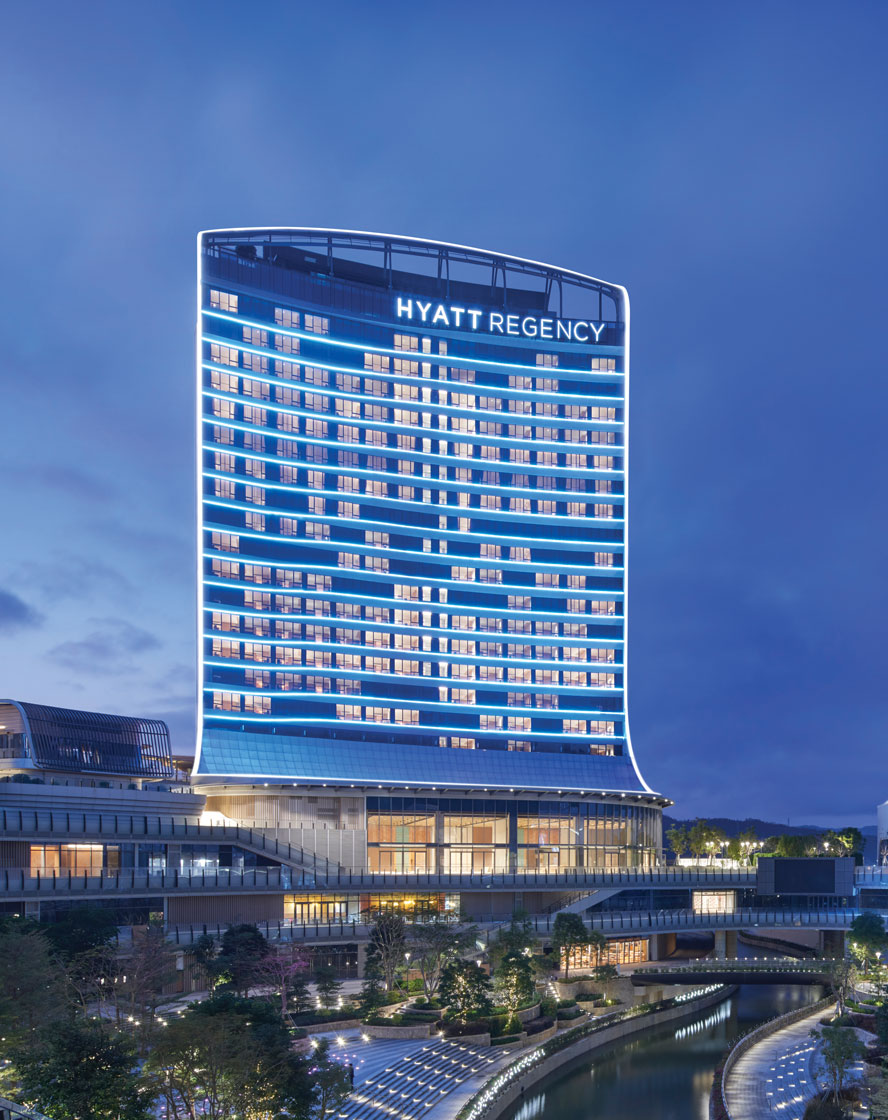
“The shopping experience is also very important. At present, middle class or high-end consumers still prefer Macau, where the overall consumer experience is still relatively rich. In the future, if Hengqin does go duty-free, it may also need to think about how to create tourism consumption experiences, including how to cooperate with Macau by offering tourist shopping routes with different characteristics.
“And if the process of buying duty-free goods in Hengqin is cumbersome and inconvenient, or if the logistics and delivery are troublesome, then people will still prefer to go to Macau or Hong Kong.”
Macau economist Edmund Loi, on the other hand, says this should not be seen as a zero-sum game between the two places.
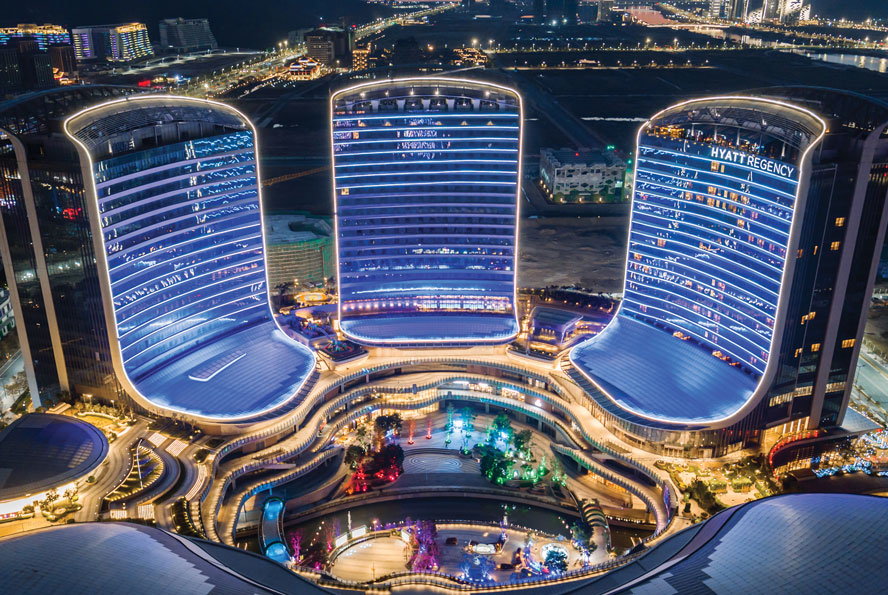
“The investment by Macau businesses in Hengqin will boost the development of the entire industrial chain in terms of capital and recruitment, which will be beneficial to all,” he said.
According to Ossolinski, true integration between Macau and Hengqin will only take place over the next decade – expedited by the ongoing development of Hengqin into a comprehensive business and tourism hub.
“Until now there hasn’t been a lot of tourism integration, but I don’t think they’ve really tried yet either, because they want Hengqin to build out more and the transportation infrastructure wasn’t really in place pre-pandemic,” he said.
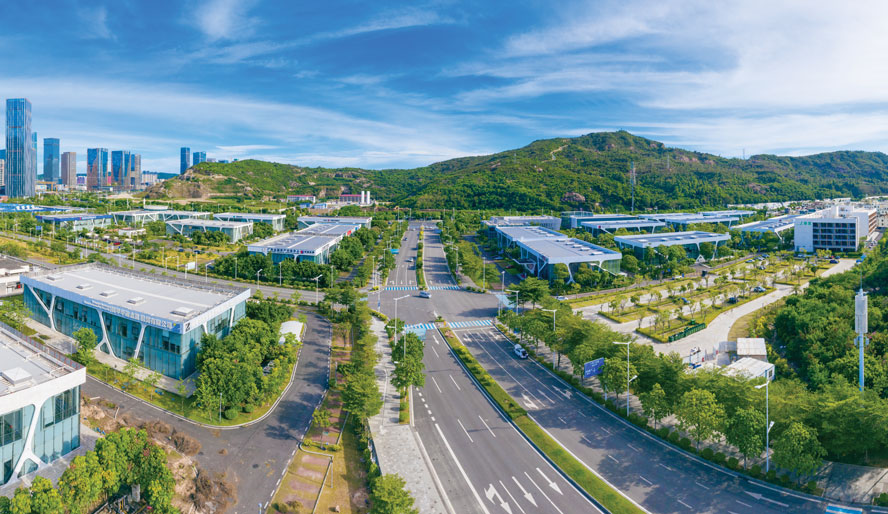 “I think the island will look like a more completed development project in 10 years but it’s been building out district-by-district. The first thing that was really complete was that first and main stage of Chimelong which has been up and running for a few years now. The next stage was the transportation infrastructure – a lot of which came into place in 2020 when Hengqin Port opened.
“I think the island will look like a more completed development project in 10 years but it’s been building out district-by-district. The first thing that was really complete was that first and main stage of Chimelong which has been up and running for a few years now. The next stage was the transportation infrastructure – a lot of which came into place in 2020 when Hengqin Port opened.
“The other thing that has changed in recent years is the financial district in Hengqin’s northeast quadrant, also known as Financial Island. Most of the buildings on it are now built out and structurally complete but not yet occupied.
“So those northeast and southeast quadrants of the island are largely done. Now they are building out the middle section of the island, and next will be the western and northern parts.
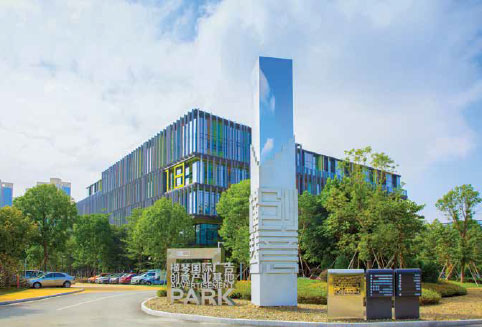
“Over time we will see these projects completed and by then the hope is that Macau and Hengqin really will become integrated, but exactly how that works, well that is going to be the big challenge.
“And until [China’s visa policy for entry to Macau] changes, you can’t really call it an integrated tourism zone. That’s only going to happen gradually.”






